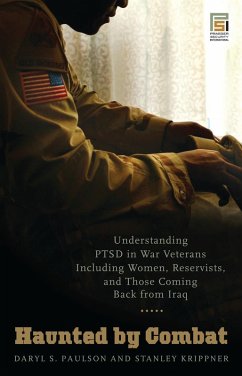Across history, the condition has been called soldier's heart, shell shock, or combat fatigue. It is now increasingly common as our service men and women return from Iraq, Afghanistan, and other ongoing combat zones. Since 1990, Veterans' centers here have treated more than 1.6 million affected men and women, including an estimated 100,000 from the Gulf War and an untallied total from the Iraq front and fighting in Afghanistan. The number also includes some 35,000 World War II veterans, because PTSD does not fade easily. Regardless of the months, years, and even decades that have passed, the traumatic events can flash back as seemingly real as they were when they occurred.In Haunted by Combat Paulson and Krippner range across history and into current experiences and treatments for this haunting disorder. They take us into the minds of PTSD-affected veterans, as they struggle against the traumatic events lingering in their minds, sometimes exploding into violent behavior. The authors explain how and why PTSD develops-and how we can help service members take the steps to heal today.
Bitte wählen Sie Ihr Anliegen aus.
Rechnungen
Retourenschein anfordern
Bestellstatus
Storno









